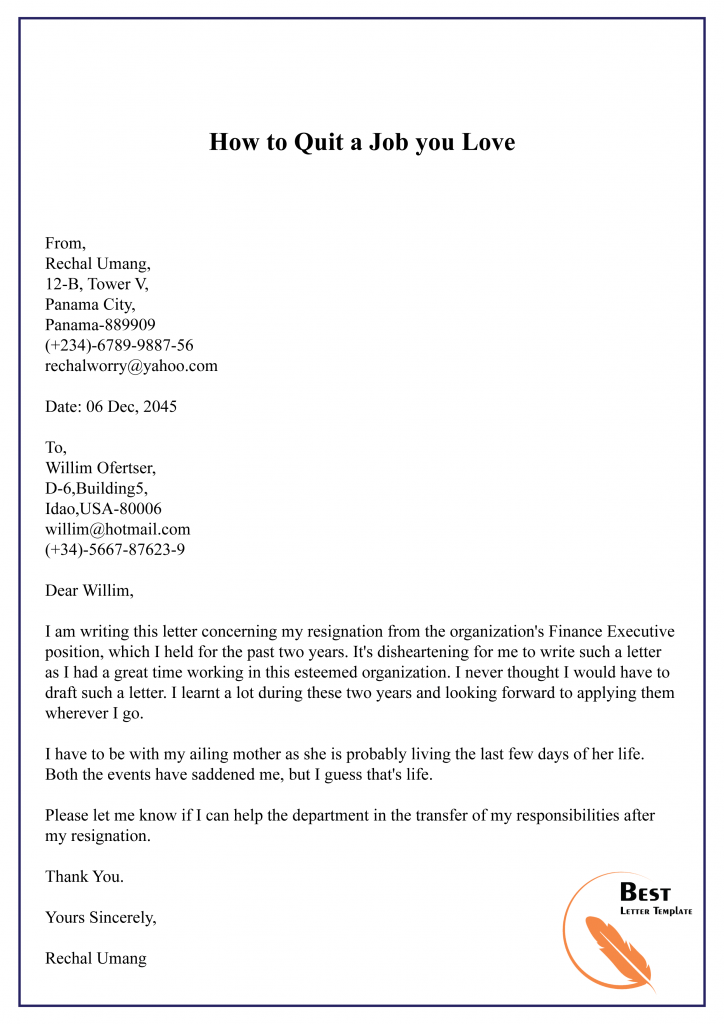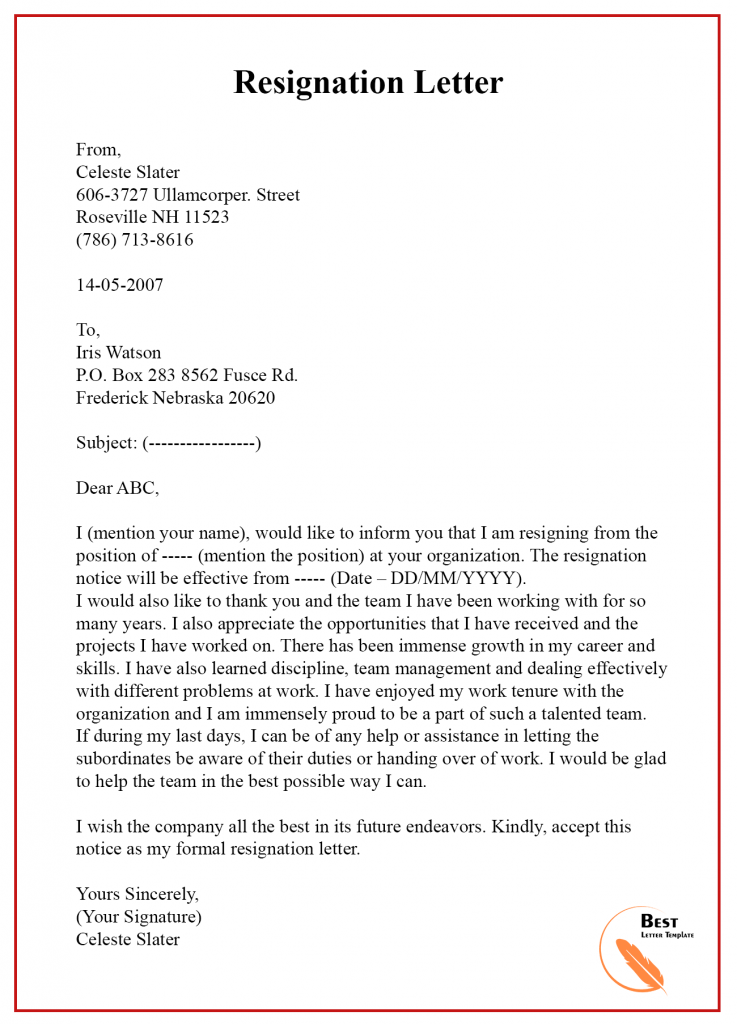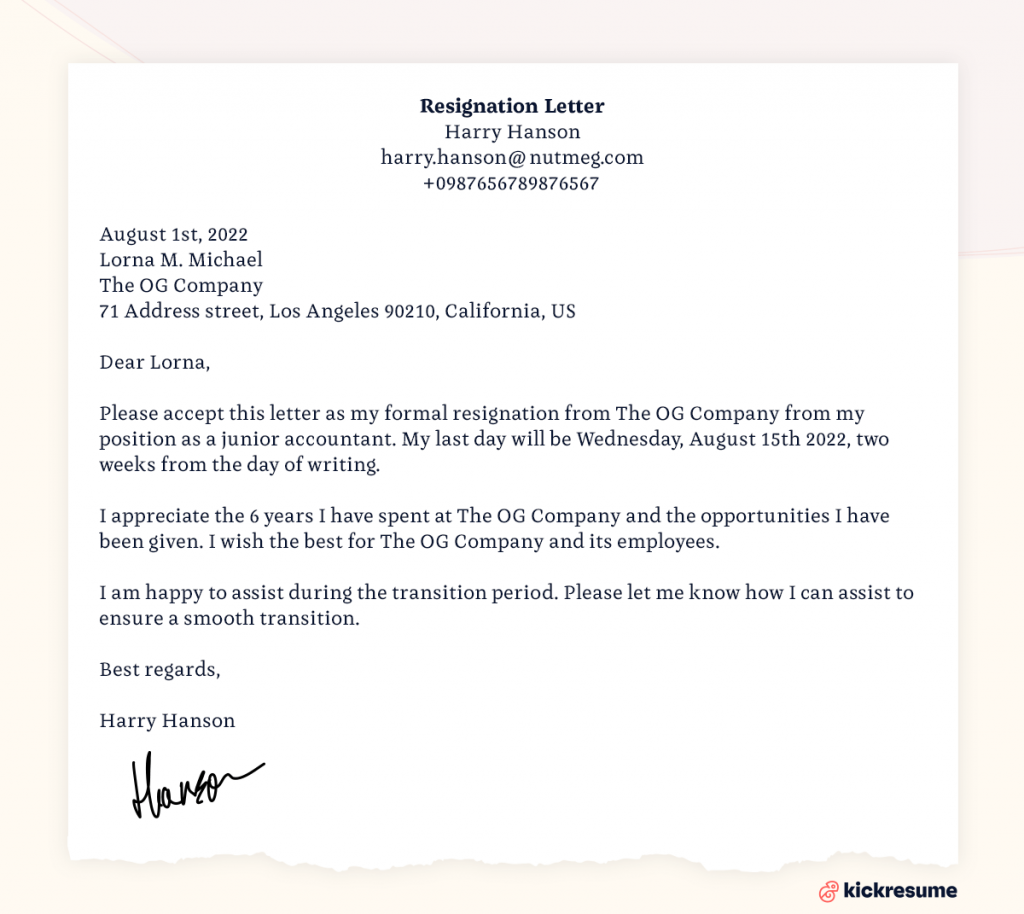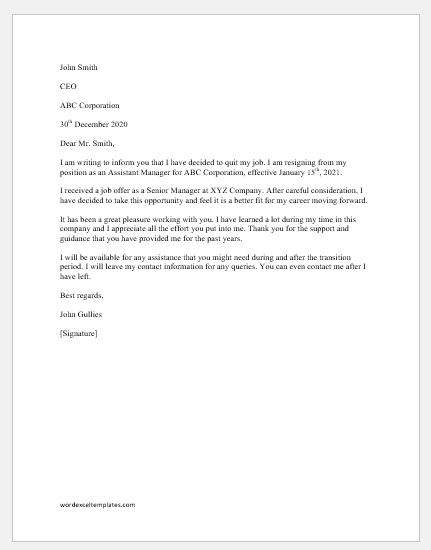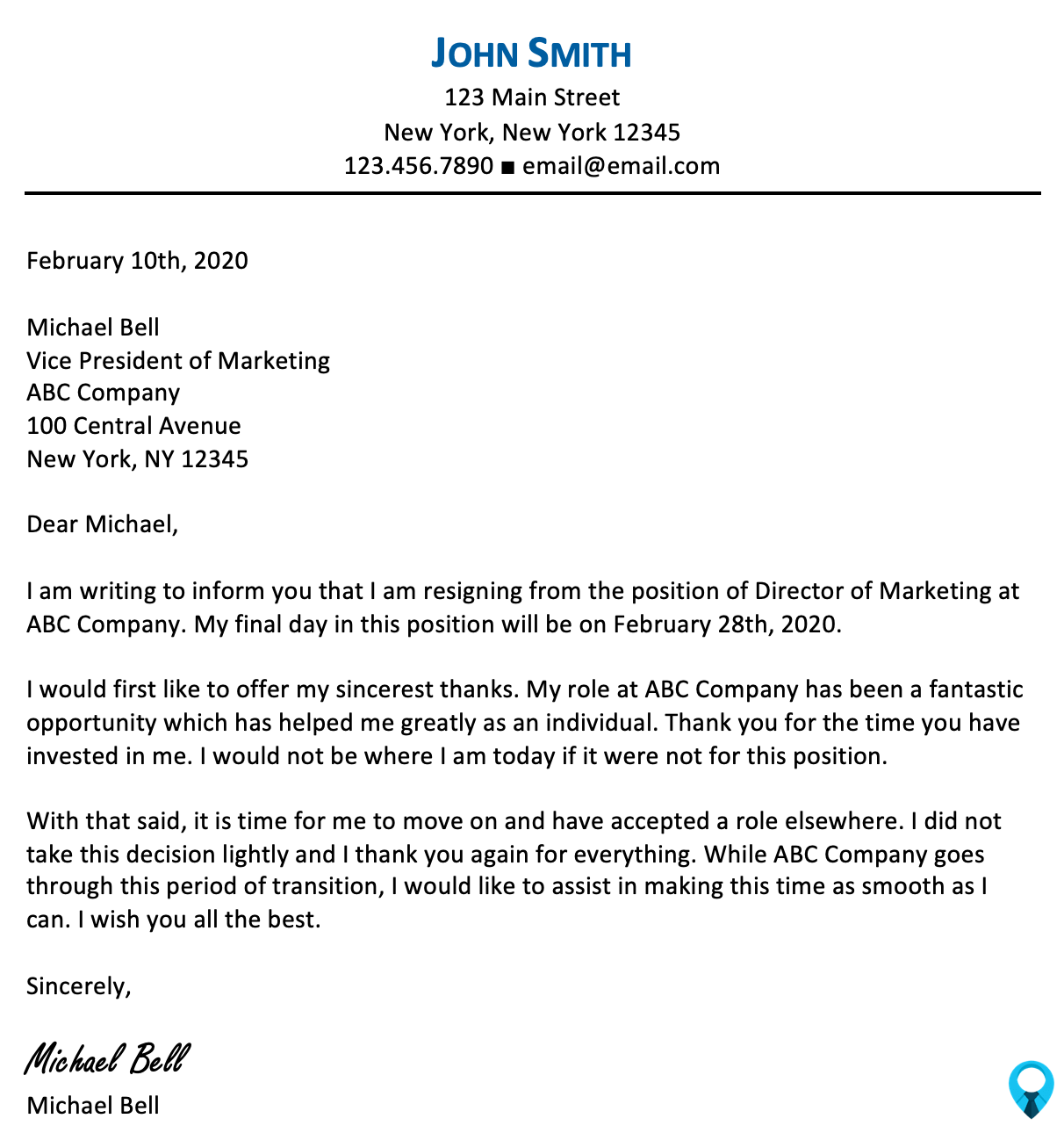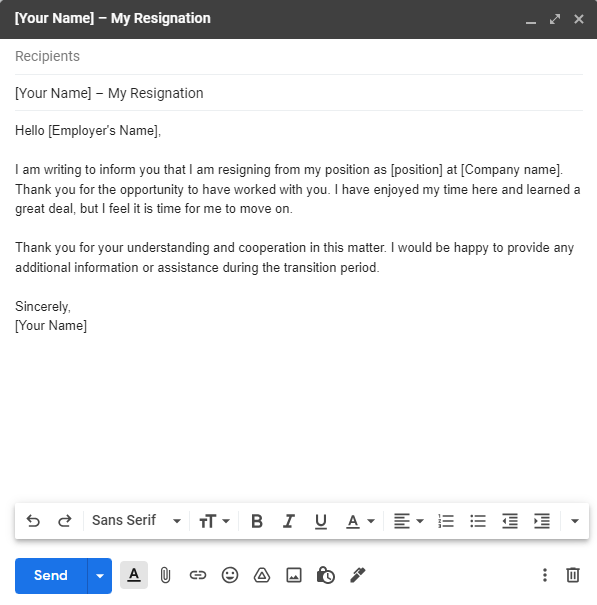How To Tell My Manager I Want To Quit

The thought of informing your manager about your decision to resign can be daunting, a conversation laden with potential awkwardness and uncertainty. Navigating this crucial professional juncture with grace and clarity is vital, not only for maintaining a positive reputation but also for ensuring a smooth transition for yourself and your team.
This article provides a structured guide on how to effectively communicate your resignation to your manager, focusing on timing, preparation, and maintaining professionalism throughout the process. We will explore essential steps, from crafting a formal resignation letter to managing the conversation itself, ensuring you leave on good terms and preserve valuable professional relationships.
Timing is Everything
Choosing the right moment to initiate the conversation is paramount. Avoid doing it during a particularly stressful time for your manager or the team, such as the lead-up to a major deadline. Ideally, schedule a private meeting to ensure you have their undivided attention.
Consider your company's culture. Glassdoor and other career resources often provide insights into specific companies, which may help you gauge the best approach based on previous employee experiences.
Prepare Your Resignation Letter
A formal resignation letter is an essential component of the process. It serves as a written record of your departure and provides clarity regarding your last day of employment.
Keep the letter concise and professional. State your intention to resign, specify your last day, and express gratitude for the opportunities you've had at the company.
"Please accept this letter as formal notification that I am resigning from my position as [Your Position] at [Company Name], effective [Your Last Day of Employment],"is a standard opening.
Offer to assist with the transition, but avoid making promises you can't keep. A simple sentence like, "I am happy to assist in any way possible to ensure a smooth handover of my responsibilities," is sufficient.
The Conversation: Clarity and Professionalism
Schedule a private meeting with your manager. Begin by stating your decision clearly and directly. Avoid rambling or hedging, as this can create confusion and prolong the conversation.
Be prepared to explain your reasons for leaving, but keep the focus on your future goals rather than dwelling on negative aspects of your current role. A statement like, "I've decided to pursue an opportunity that aligns more closely with my long-term career aspirations," is often effective.
Do not badmouth the company, your colleagues, or your manager. Maintaining a positive attitude is crucial, regardless of the circumstances surrounding your departure.
Anticipate Questions and Have Answers Ready
Your manager will likely have questions about your decision and your departure plan. Be prepared to address these thoughtfully and professionally.
Anticipate questions about the handover of your responsibilities. Demonstrate that you have considered the impact of your departure and are committed to ensuring a smooth transition.
If asked about your future plans, provide a general overview without divulging too much personal information. A simple, "I'm pursuing a new opportunity in [Industry/Field]," is usually sufficient.
Handling a Counteroffer
Be prepared for the possibility of a counteroffer. Consider in advance whether you would be willing to stay if offered more money, a promotion, or other incentives.
If you are not interested in a counteroffer, politely decline. Explain that your decision is based on factors beyond compensation or position.
Remember, accepting a counteroffer can sometimes create awkwardness or resentment within the team if the underlying issues prompting your departure remain unaddressed. Consider long term impacts of any decision.
Maintaining a Positive Relationship
Your last few weeks at the company are crucial for maintaining a positive professional reputation. Be diligent in completing your tasks, assisting with the handover of your responsibilities, and remaining a team player.
Express your gratitude to your manager and colleagues for the opportunities and experiences you've gained. A sincere thank you can go a long way in preserving positive relationships.
LinkedIn is a valuable tool for staying connected with former colleagues. Maintaining these connections can be beneficial for future career opportunities.
Conclusion: Leaving on Good Terms
Resigning from a job is a significant step, and handling the conversation with your manager effectively is essential for a smooth transition. By carefully planning your approach, preparing a formal resignation letter, and maintaining professionalism throughout the process, you can leave on good terms and preserve valuable professional relationships.
Remember that your reputation precedes you. Leaving a positive impression can open doors to future opportunities and strengthen your professional network.
Taking these steps minimizes stress and ensures a smooth transition for both you and your former employer, setting the stage for success in your next endeavor.
